Low Battery - Why You're Always Mentally Drained (And How to Fix It)
Posted on:
source
notes:
- Low Battery: Why You're Always Mentally Drained (And How to Fix It)
- A talk by Callum Silcock
This presentation was written using obsidian slides which is why the markdown looks a little weird, see attached PDF output and notes of every slide.
Everything underneath "note" below are speaker notes to remind me what to talk about
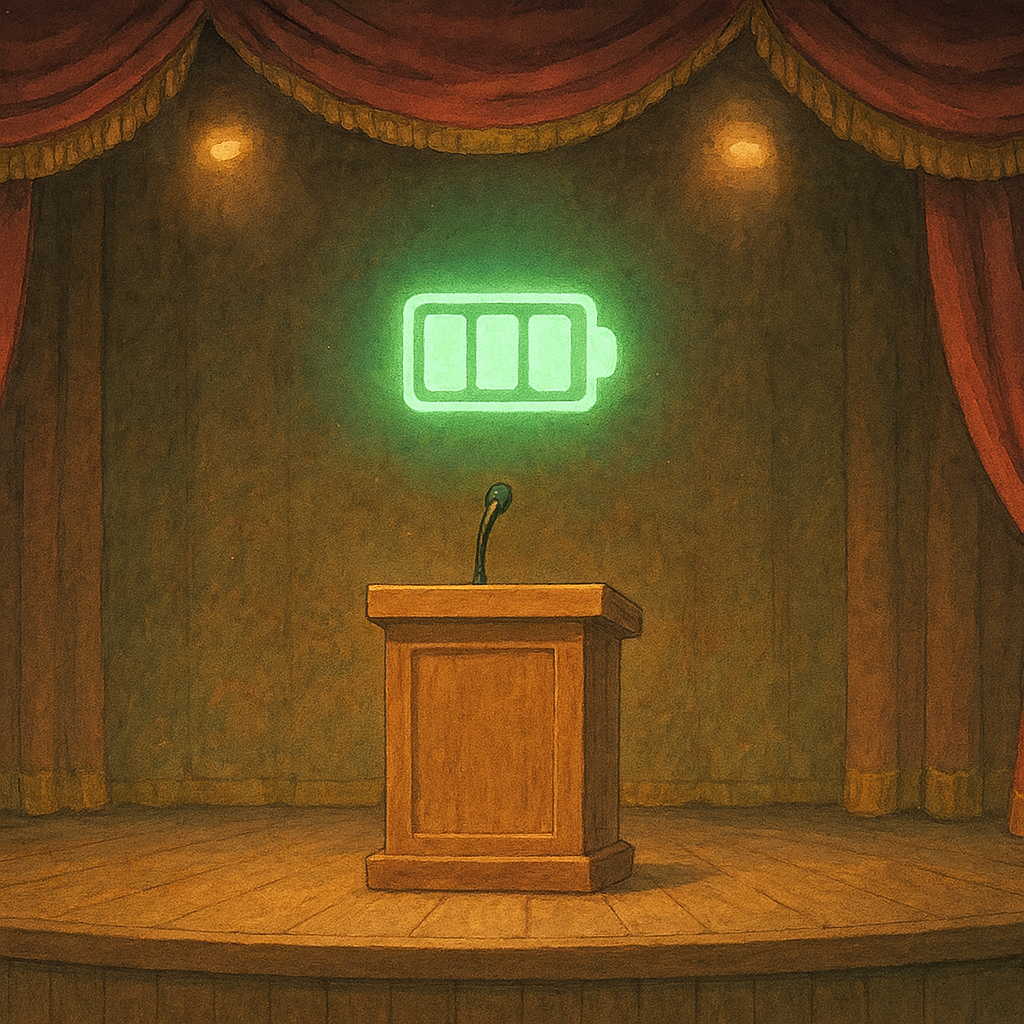
note:
- Introduction - Principal Engineer at ANZ
- 15+ years building and scaling dev teams
- Today: why you feel brain dead at 3pm and what to do about it
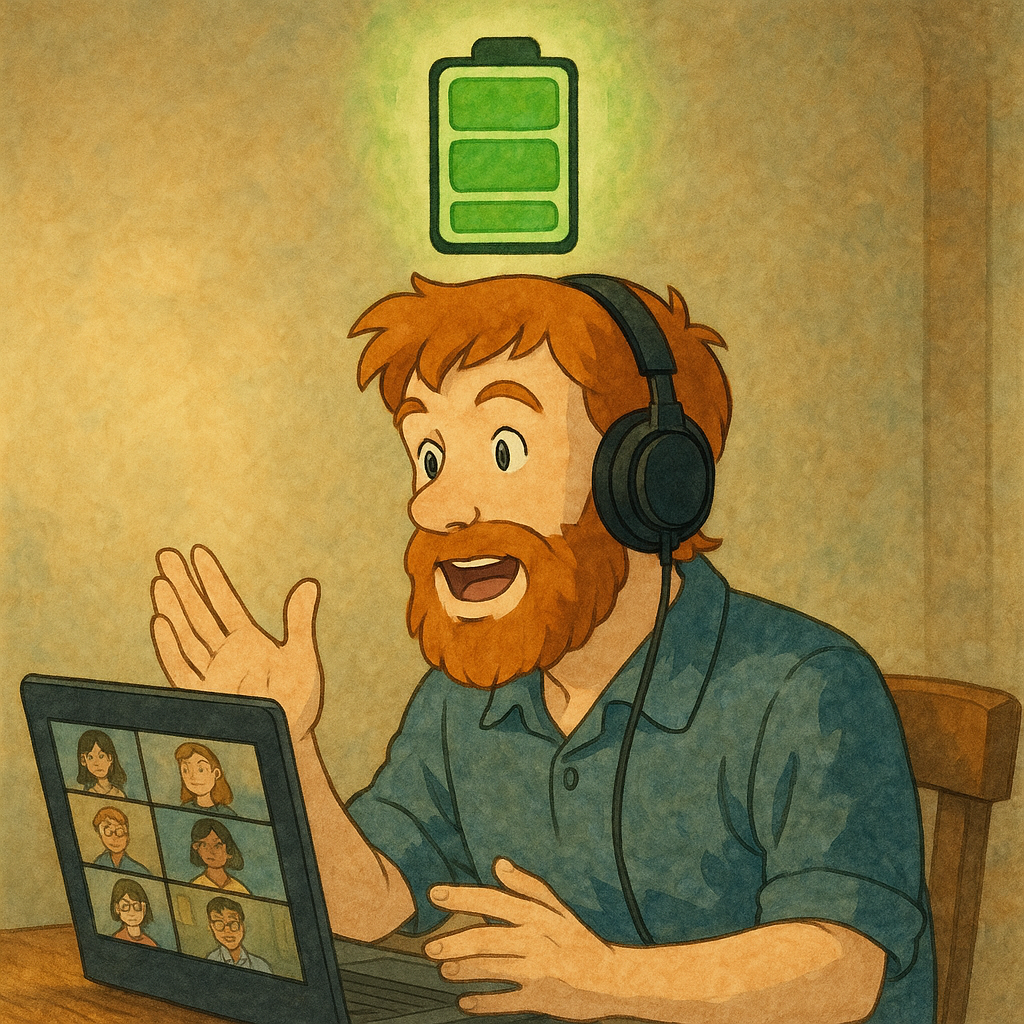
note:
Story time - Baby is coming
- October 3rd 2023
- I'm working from home and dialed into my standup at 10am with a new manager that's just started at ANZ a few weeks prior
- Why am I working from home? Because my wife is 41 weeks pregnant and due at any moment

note:
- She comes into the room and exclaims "I'm pretty sure i'm in labor"
- Ok, great! We have a plan for this, I do a quick brb on the call and get her to sit down on the couch and set her up
- I run back to the call and tell everyone "my baby is coming" and put the slack status on, quickly book the next 2 weeks as OOO and cancel all my meetings
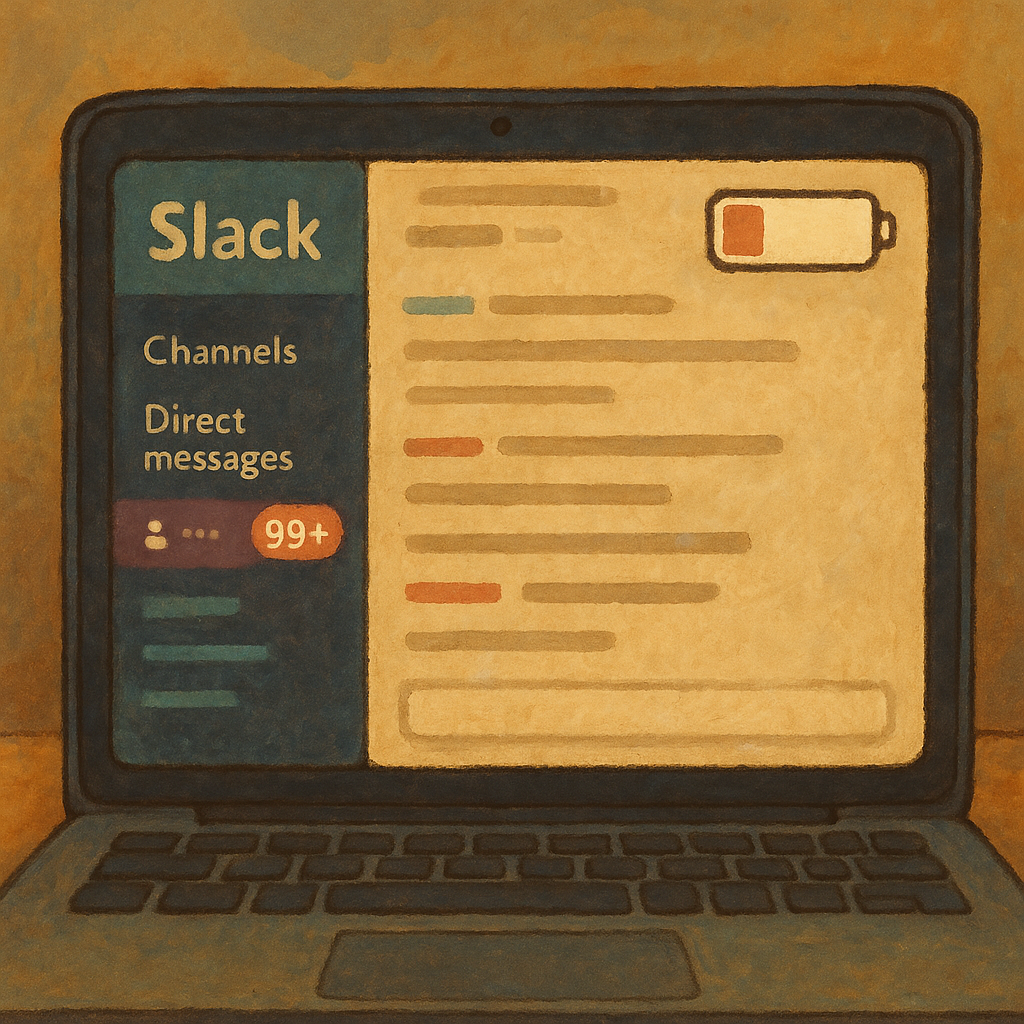
note:
But in the time it takes me to do this suddenly I have 6 new slack notifications
- I start looking at them
- OMG congrats!!
- Could you quickly send me the document so I can work on it while you're away
- etc.
Hold on... this isn't important... back to the task at hand
I close the laptop go through to the other room to sit with my wife
Ok, gotta call my Dad as I need him to pick up the dog.
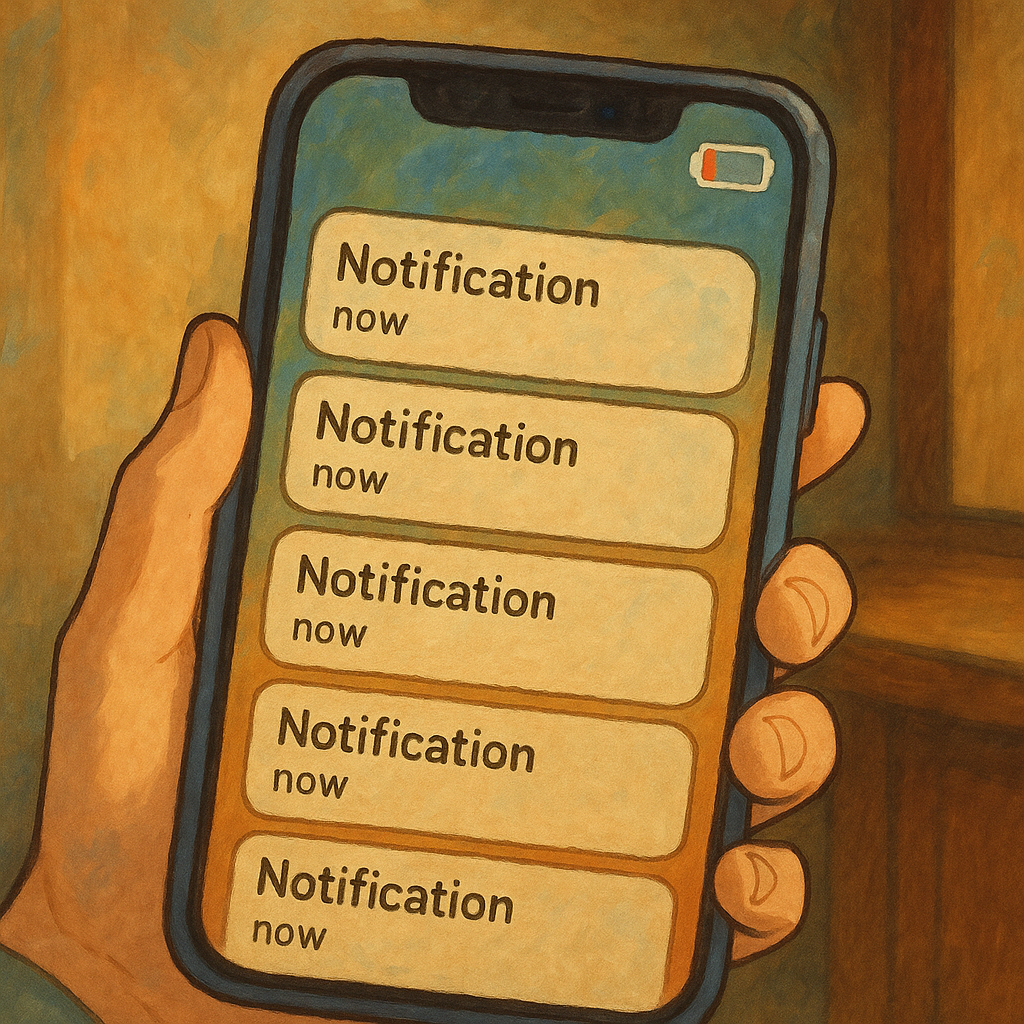
note:
- Open my phone and see a wall of notifications
- Do a quick scan
- ummm more slack notifications
- Gotta Focus
- Call dad
Great he's going to pick up the dog
Ok back to my wife, what do I need to do now, right
Start timing the Contractions
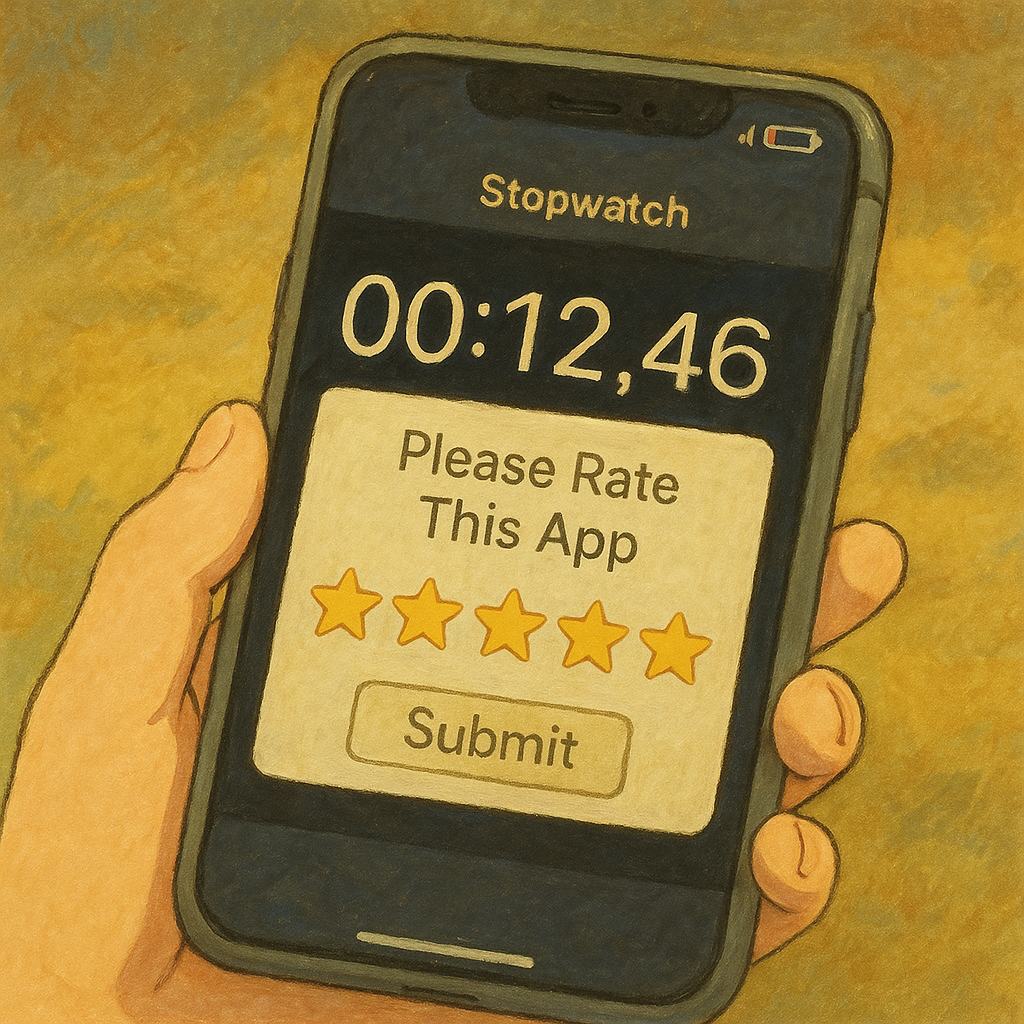
note:
I open the contraction timer app, click "start contraction" and immediately get a "Could you rate this app out of 5 stars"
The most important thing in my life was happening that day and I was consistently bombarded with things trying to steal my attention
Things getting me to switch focus
Things that ultimately didn't matter

note:
Sound familiar?
- We're constantly being pulled away from what currently matters
- Notifications from other applications
- I bet in the time i've been talking you've had a bunch of notifications already pop up
- Every buzz, ping, popup stealing our focus
- And there's a hidden cost we're not seeing
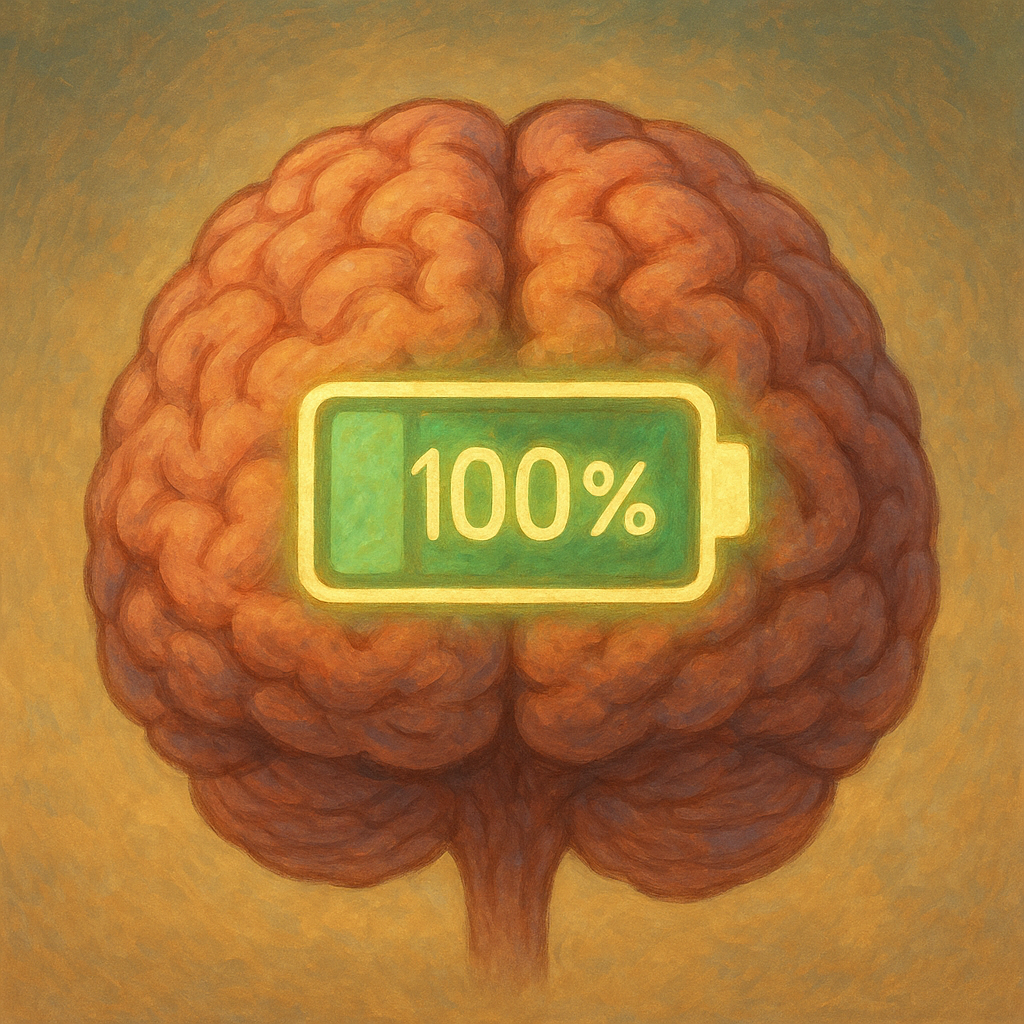 note:
note:
Your brain has a battery
- Think of cognitive capacity like your phone battery
- Start the day at 100%, take it off charge to wake up
- Every task drains it a little
- Sleep recharges it
- Simple, right? But here's where it gets interesting'
- It's not just WHAT you do that drains battery, it's HOW you do it
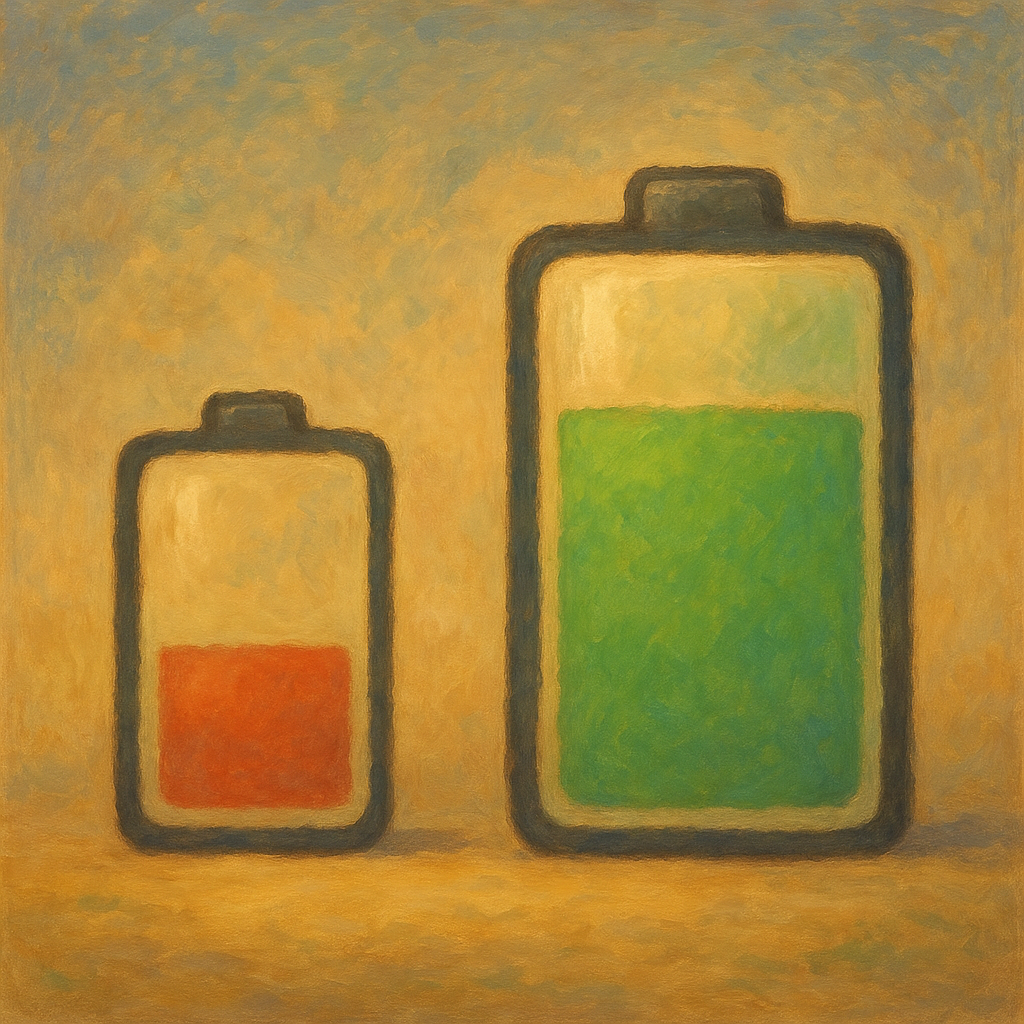
note:
Some brains drain faster than others
- If you're neurodivergent, especially ADHD, cognitive battery starts smaller and drains faster
- This isn't a limitation, just how your brain may work
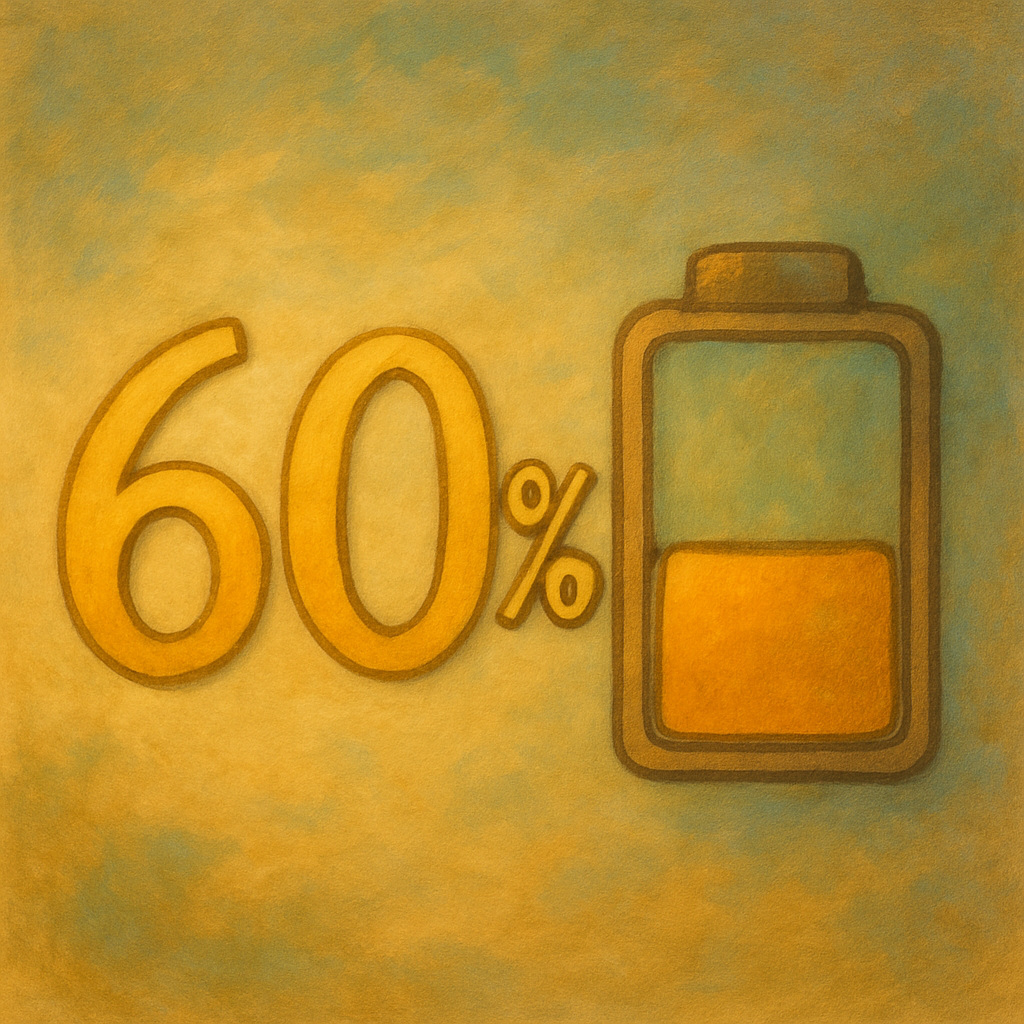
note:
We're all running at 60% capacity
- Research shows most professionals spend 20-40% time on meaningful work
- The rest: switching between tasks, managing interruptions, cognitive overhead
- But, It's not just about time
- There's a deeper problem happening in our brains
source
VoucherCloud Study: The average office worker is only productive for 2 hours and 23 minutes each day Apollo Technical
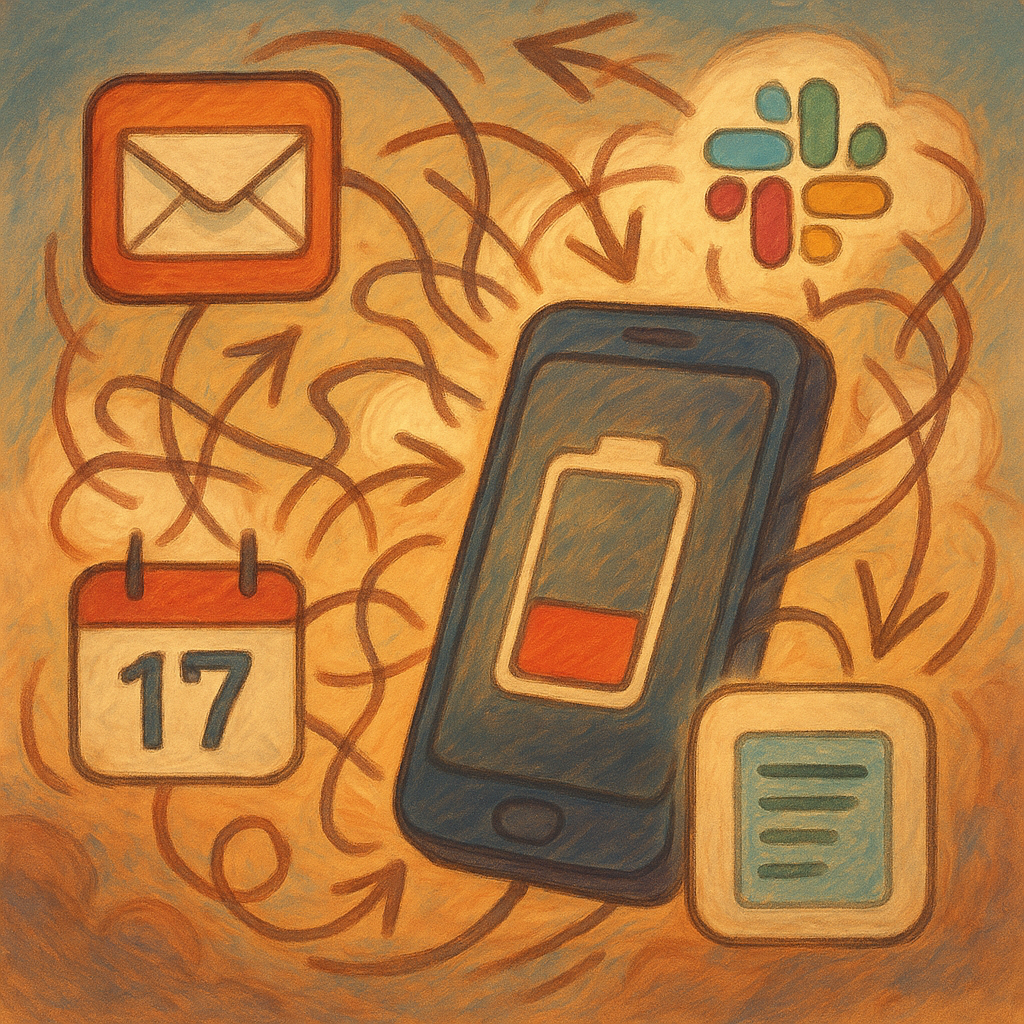
note:
The Switching Cost Trap
- Every time you switch between tasks, brain pays cognitive tax
- Your Brain has to stop, context switch, reload new task
- Like closing one app and opening another
- creates a processing overhead
- creates errors
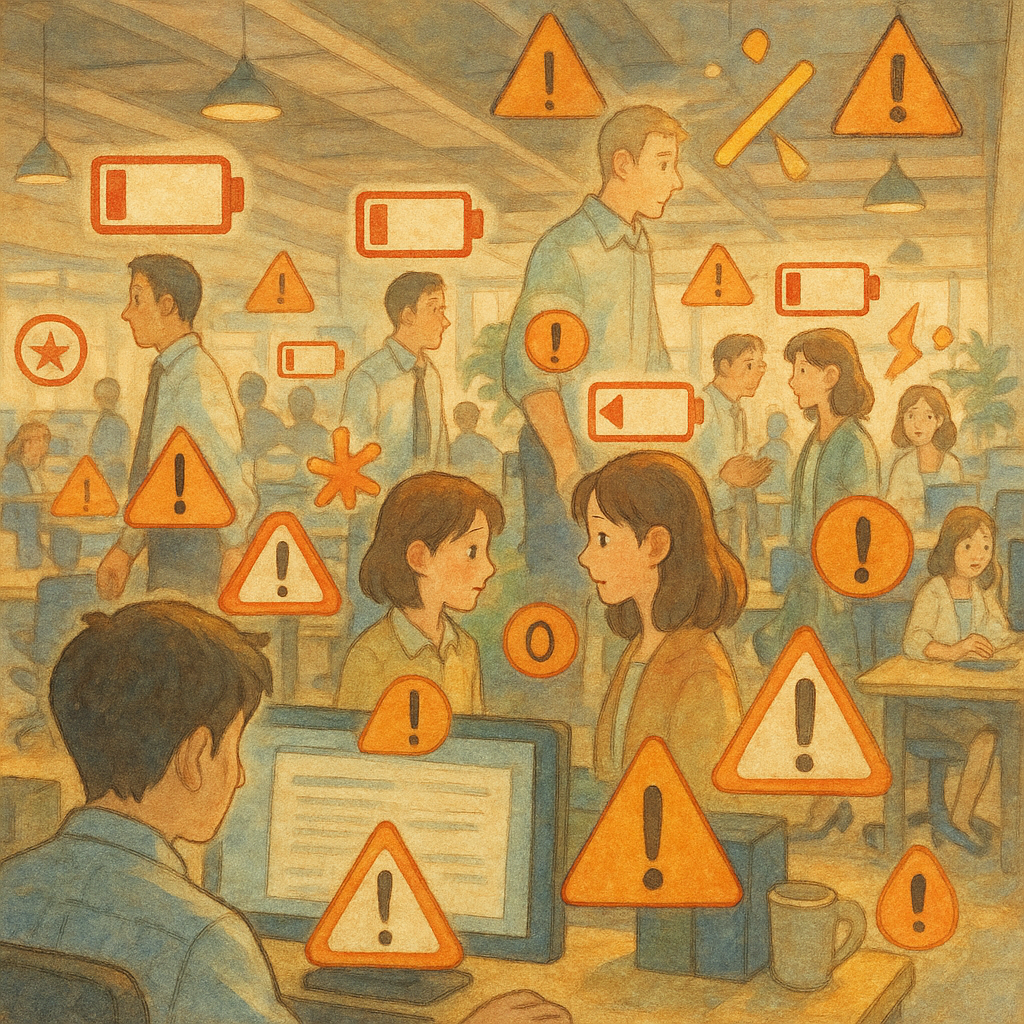
note:
It's not just online
- Environmental factors also play a large part
- In the office we have
- Physical interruptions - "shoulder tapping" - people coming to your desk
- Cognitive drain
- Overhear conversation? Brain needs to filter that out
- More cognitive drain
- And the worse, peripheral vision constantly triggered by movement
- Like someone walks behind my monitor?
- Even more Cognitive drain
- Physical interruptions - "shoulder tapping" - people coming to your desk
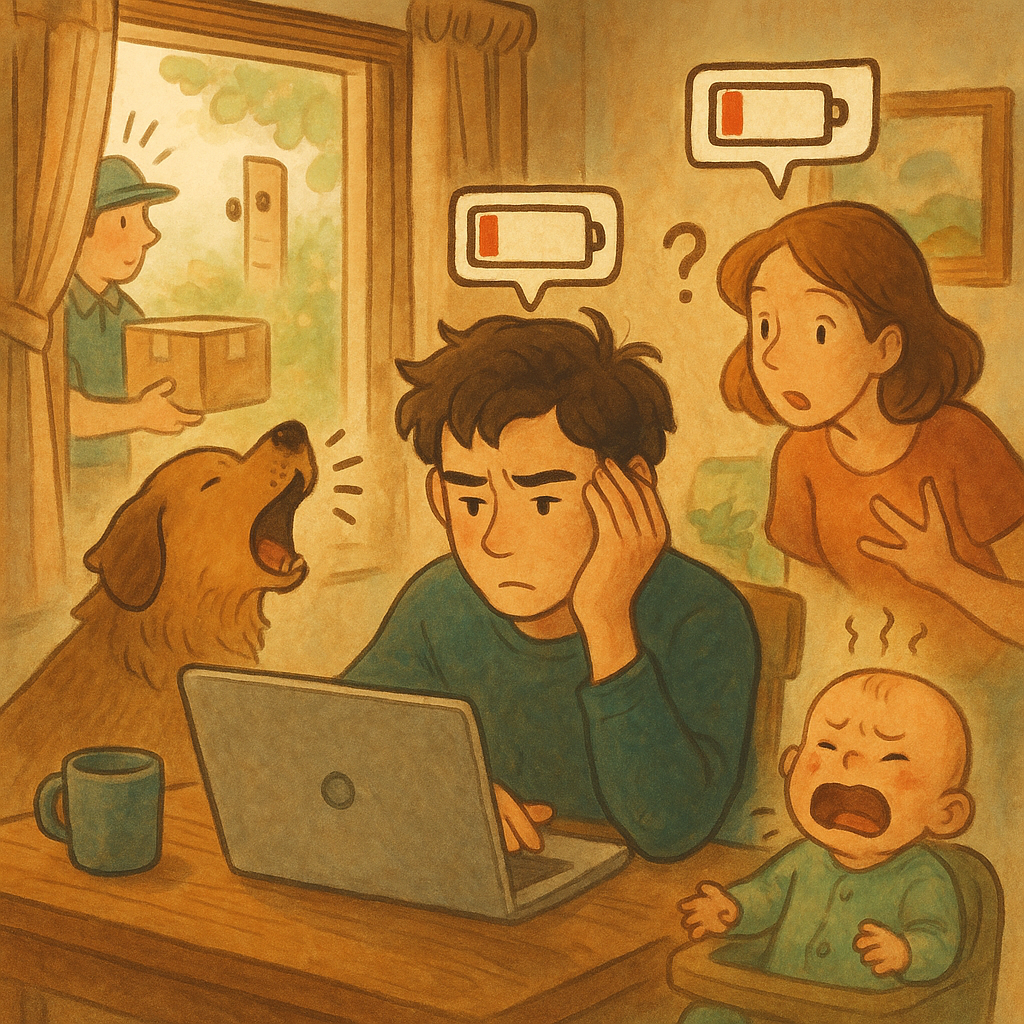
note:
And it's not just in the office
- Working from home we also have forced cognitive switches
- Seeing the laundry that you still need to put on or the dishes in the sink
- Doorbell rings from Amazon delivering a package
- My dog that wants to bark at everyone that walks past my house
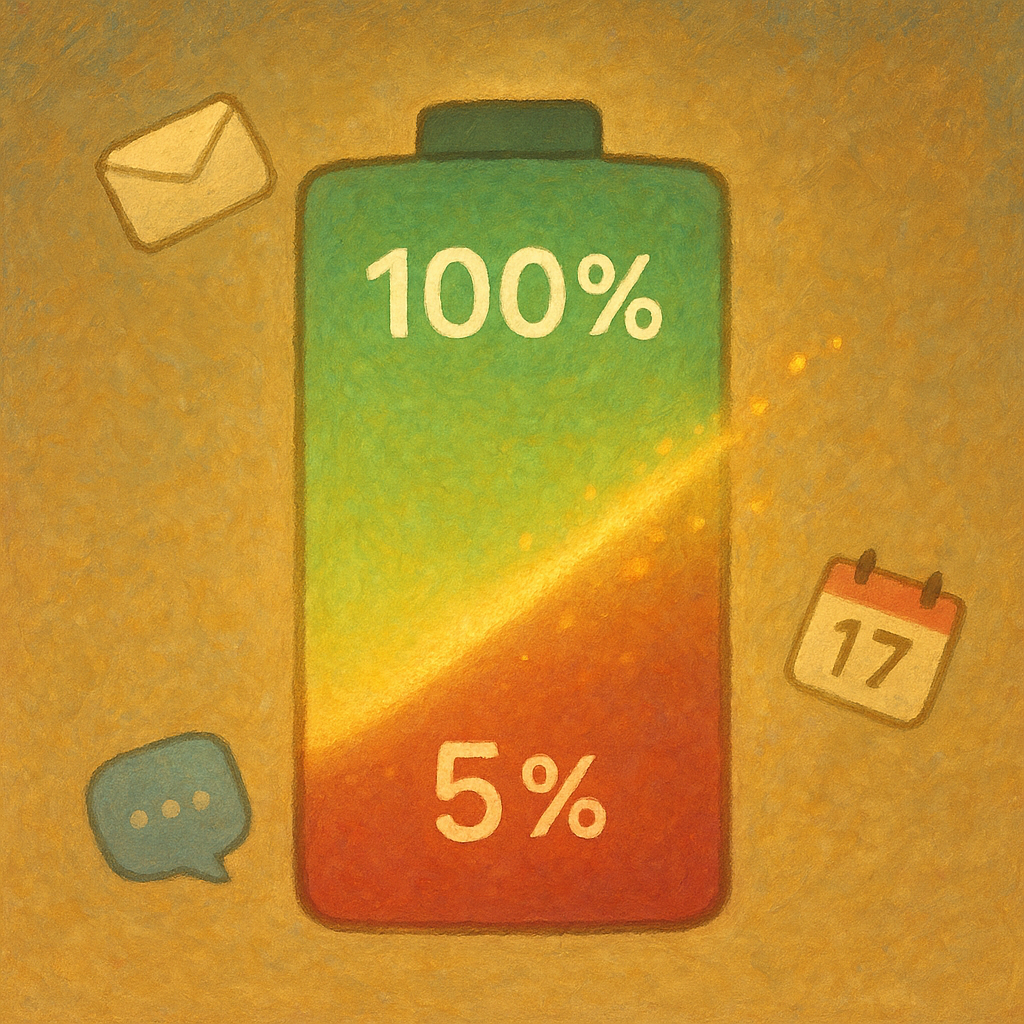
note:
The compound effect
- All of these compound together
- One or two switches? No big deal
- But we're switching tens to hundreds of times per day
- Email, Slack, meetings, phone calls, different projects
- Each switch compounds
- By afternoon, cognitive battery running on fumes
- Don't know why because each individual switch felt harmless
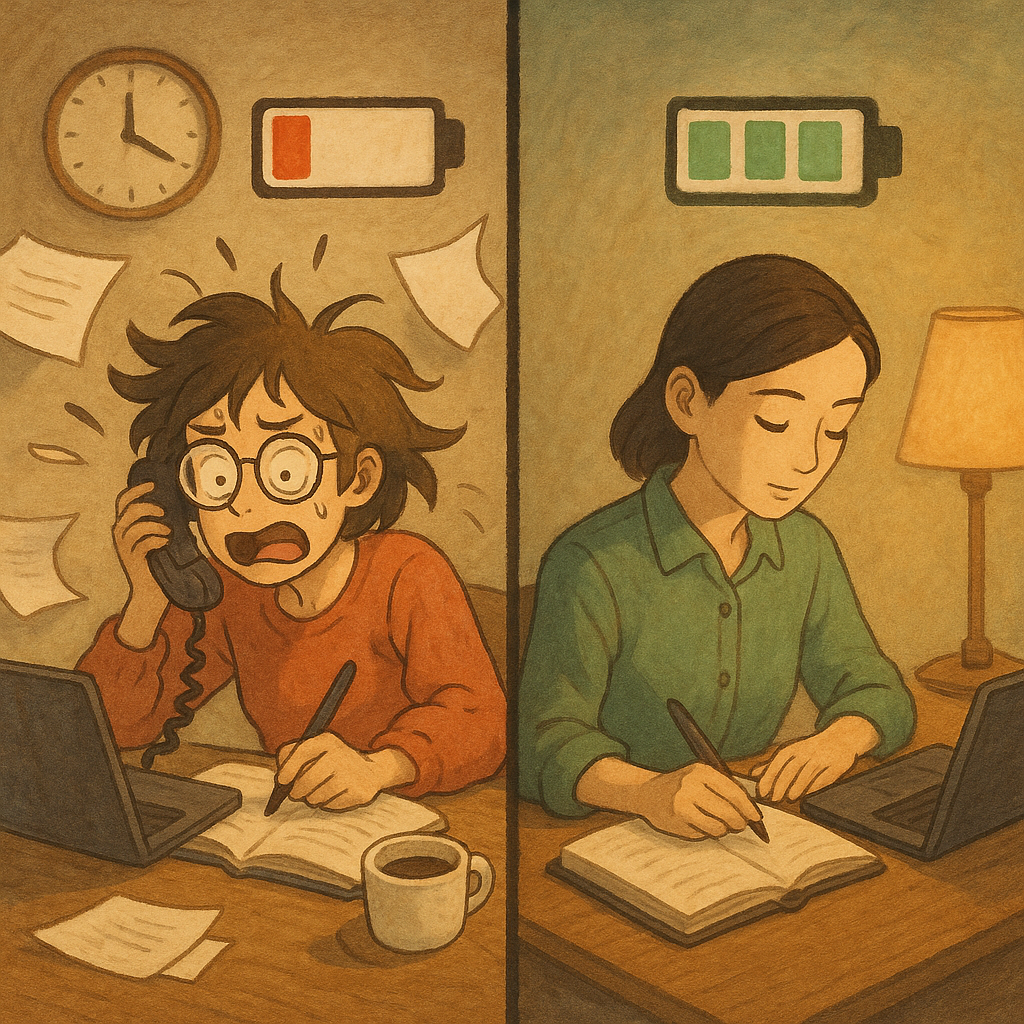
note:
Fast vs slow battery drain
- Focus on a single meaningful item drains our battery slower
- Deep work - when you're in flow state - barely drains battery at all
- You can do this all day
- But responding to 12 different slack threads, or something like, I dunno, suddenly needing to do a ton of estimations and elaboration sessions?
- Kills your battery quick

note:
What can I do?
- As a manager you have a major impact on your teams energy
- You can implement strategies to help them preserve their batteries
But first...

note:
First: put on your own oxygen mask
- Start with you
- Look at your own situation first
- By implementing strategies to help your own battery, you will learn how to help your staff
- Can't preserve other people's cognitive batteries if yours is constantly dead
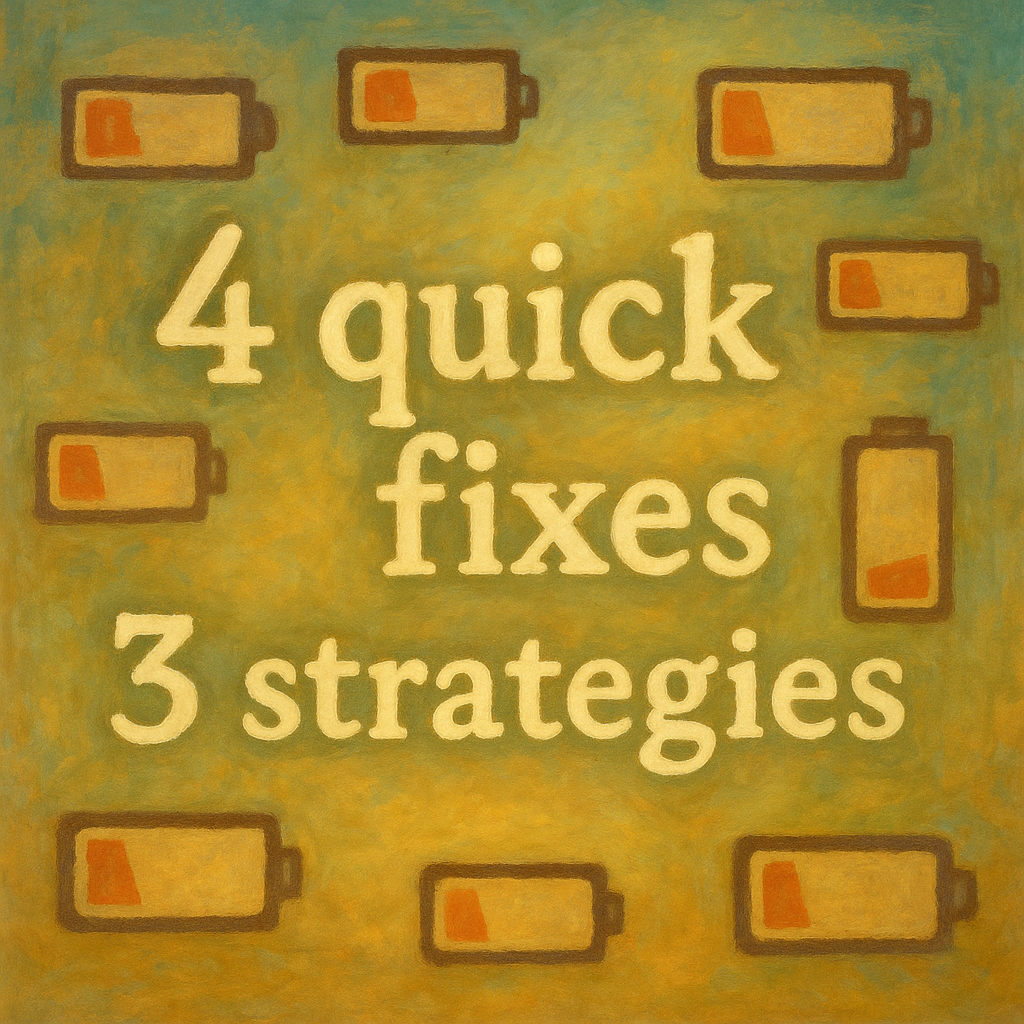
note:
holding slide for strategies
4 quick fixes 3 strategies
Ok... so, I'm an engineer and love giving people actionable takeaways from my talks, so, here's some immediate things to roll out
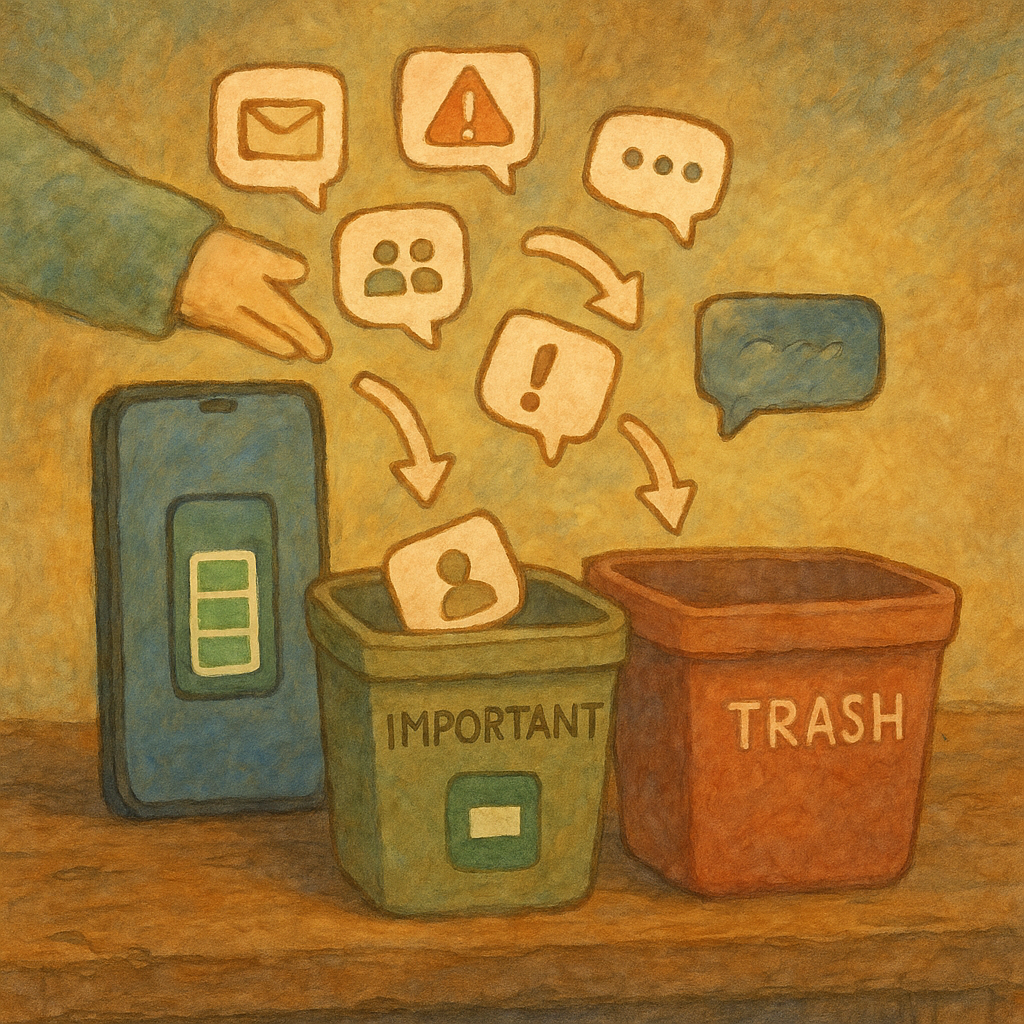
note:
Quick fix #1: Notification triage
- As we discussed notification is context switch
- Phone buzzes, brain automatically processes "is this important?"
- Even if don't check immediately, you've paid cognitive tax
- Be ruthless and cut those out
- Email / slack don't need real-time responses
- You can batch these into dedicated times
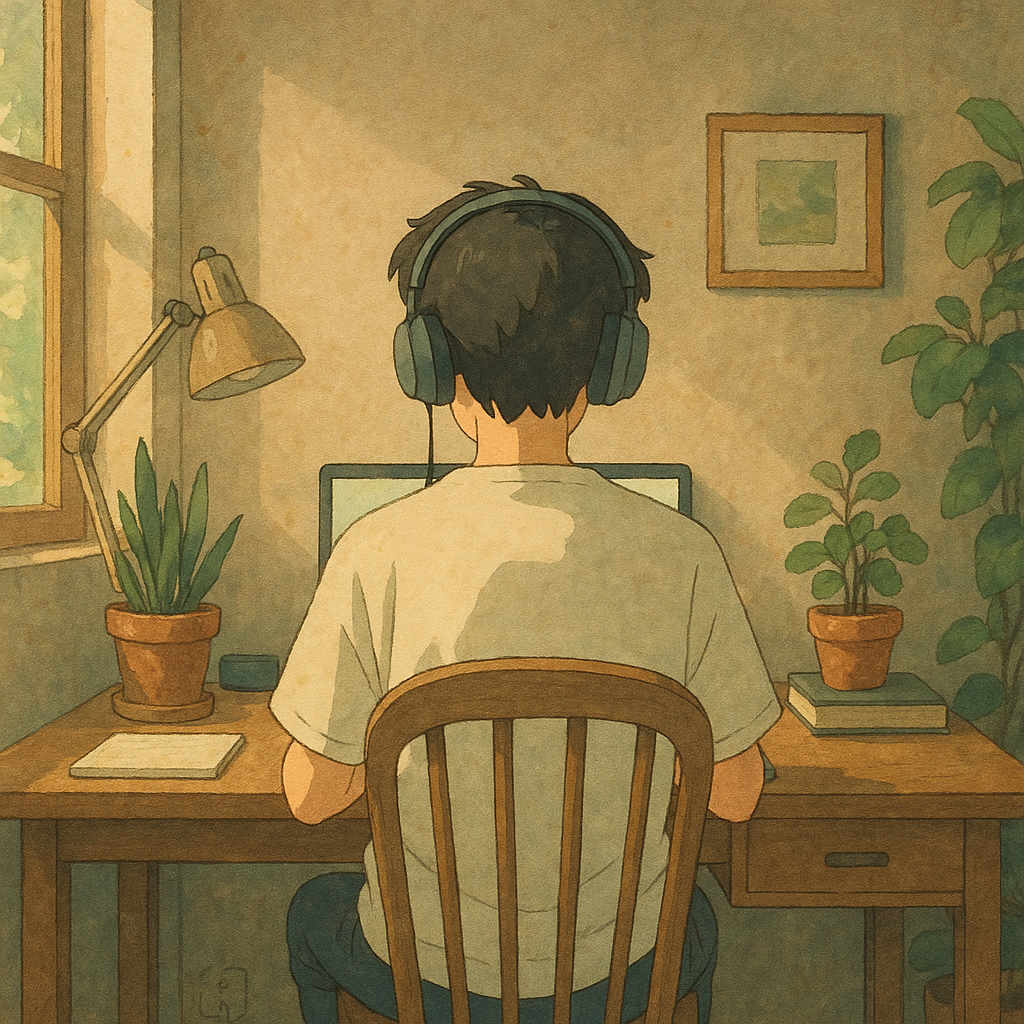
note:
Quick fix #2: Physical workspace
- Your environment shapes your cognitive load
- In office, position yourself to minimize peripheral movement
- headphones mean "don't interrupt"
- try messaging on slack first
- At home, dedicate space for work
- Brain learns to associate that space with focus mode
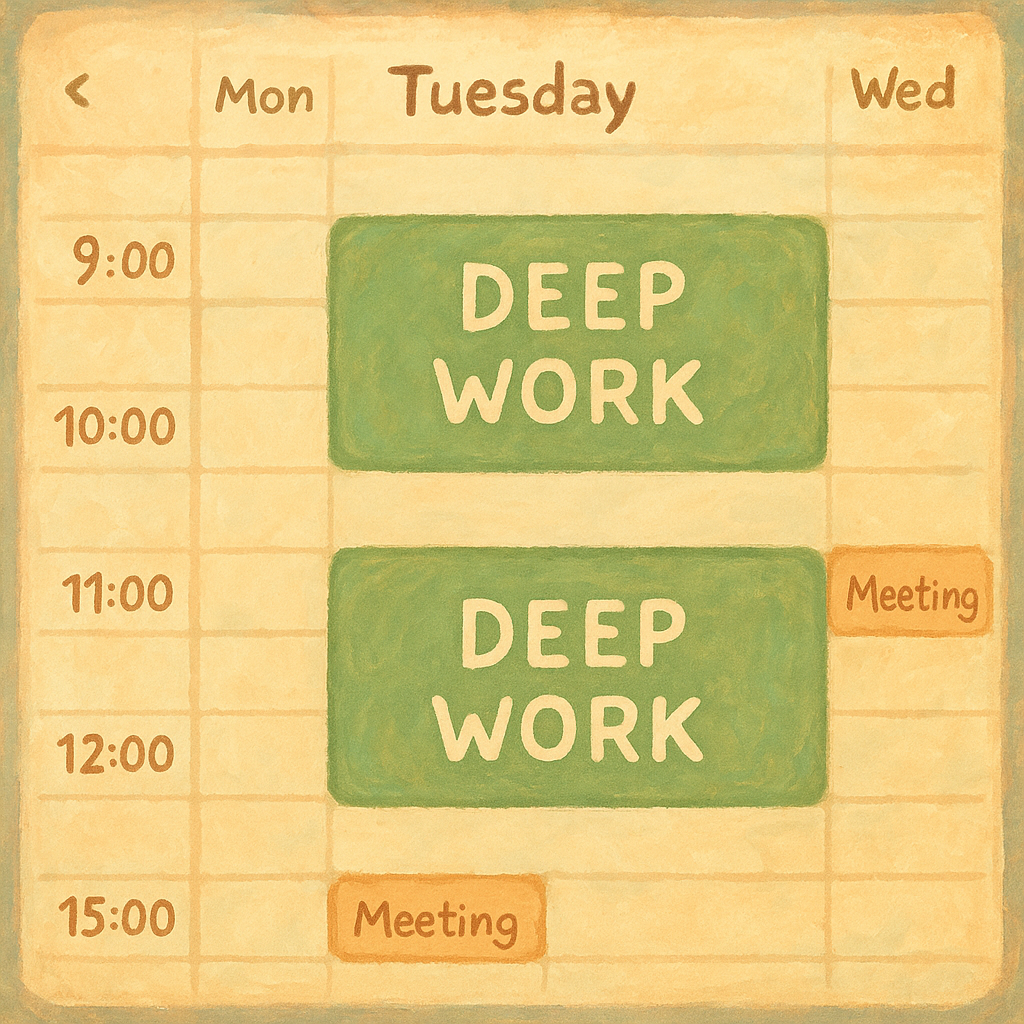
note:
Quick fix #3: Calendar blocking
- Most people are calendar reactive
- Let meetings fill their day, try to do real work in gaps
- Flip this
- Block time for most important work first, let meetings fill around it
- Two hours is sweet spot - long enough to get into flow, short enough to maintain energy
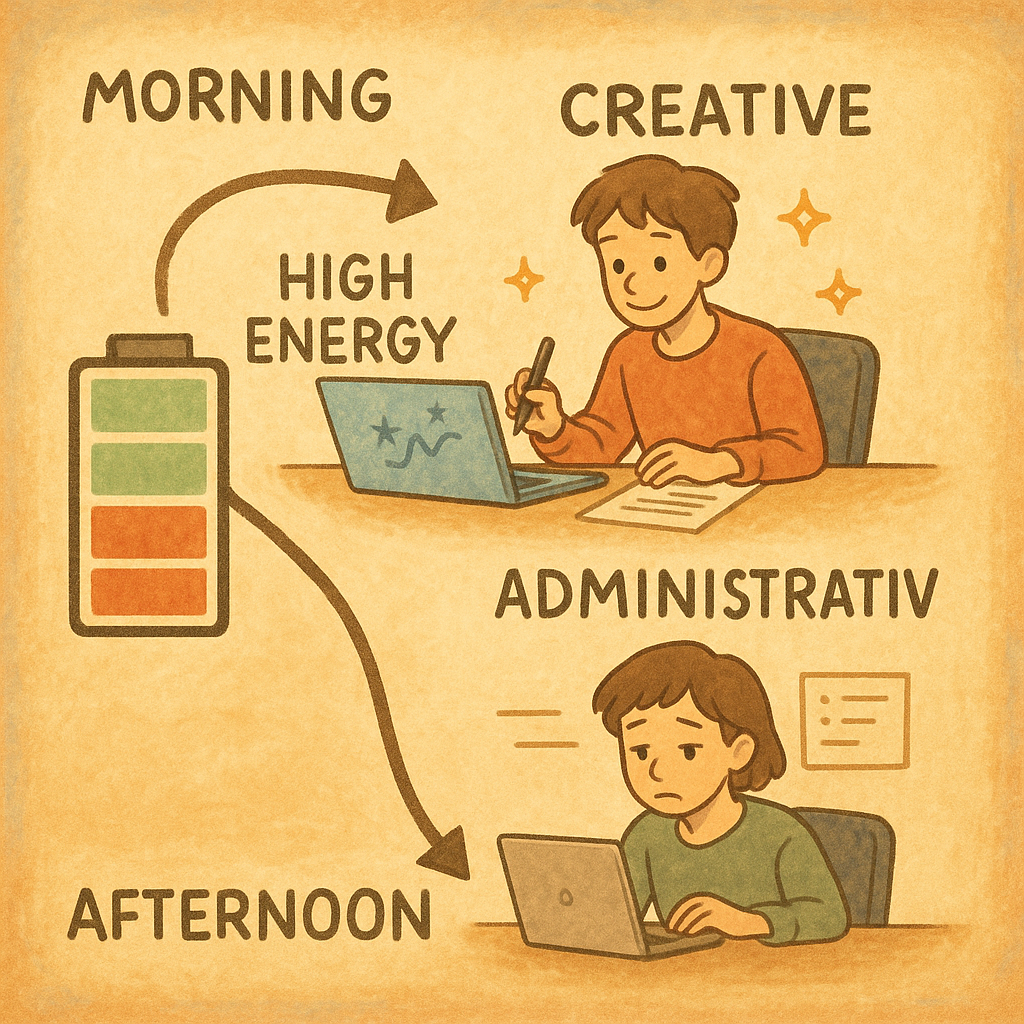
note:
Quick fix #4: Deep vs Shallow scheduling
- Cal Newport's concept - not all work is created equal
- Deep work requires your full cognitive battery
- Shallow work can be done when running low
- Schedule accordingly
- Do most important thinking when battery is full
- Save email for when running on fumes
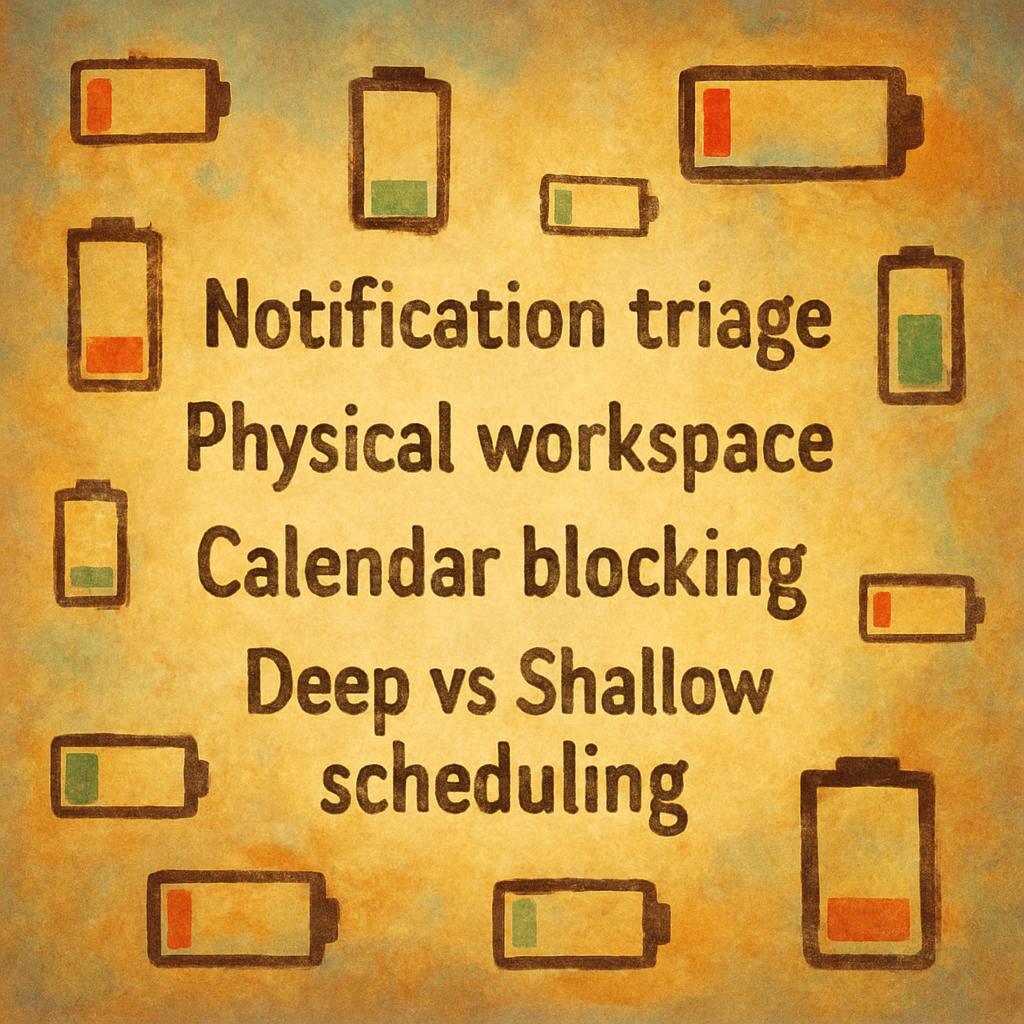
note:
Holding slide for all 4 quick fixes
Ok lets move on to strategies

note:
Strategy #1: Communication protocols
- Set a culture with your and stakeholders on communication norms
- Not everything needs immediate response
- Most "urgent" things aren't actually urgent
- Create clear protocols about what warrants interrupting someone's deep work vs what can wait
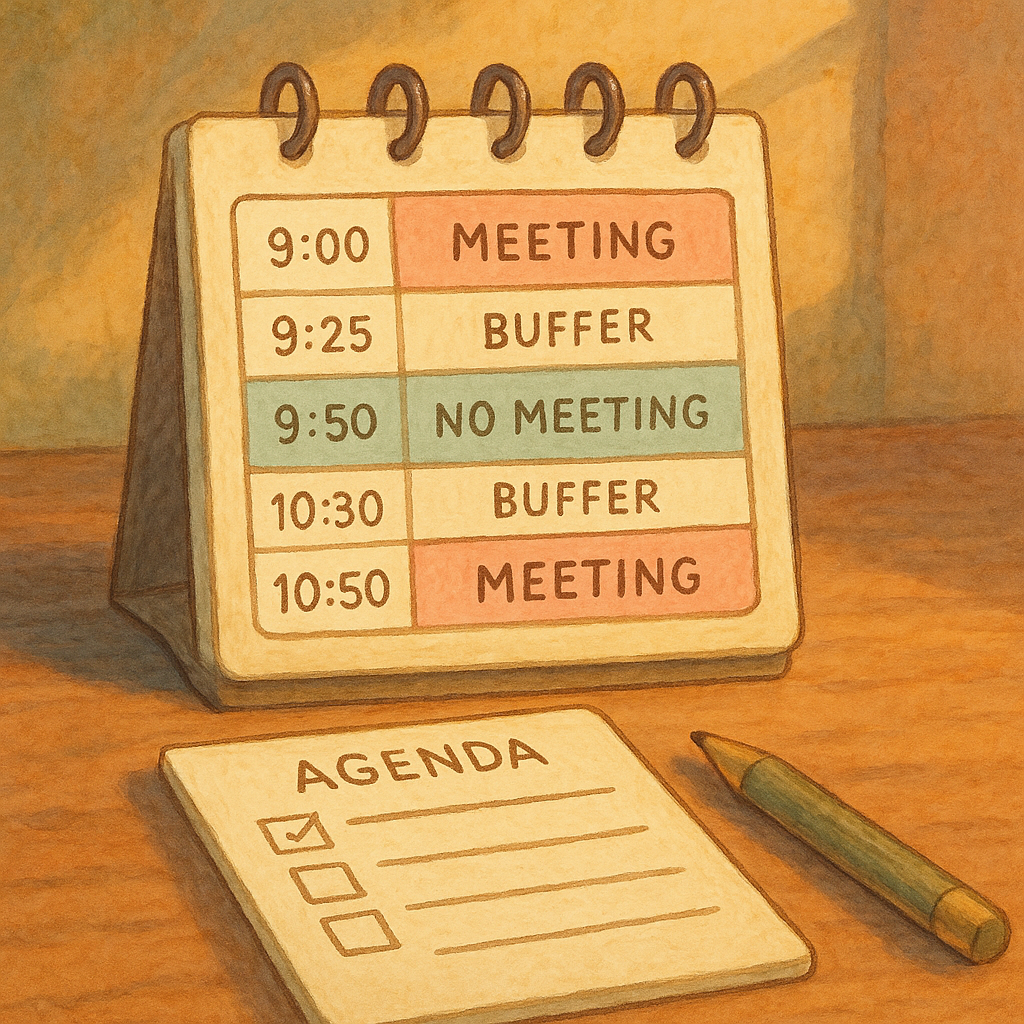
note:
Strategy #2: Meeting hygiene
- Meetings are major battery drains, especially back-to-back
- Build in transition time so brain can context switch properly
- Protect blocks of time that are meeting-free for your team
- Please have an agenda - aimless meetings are cognitive torture
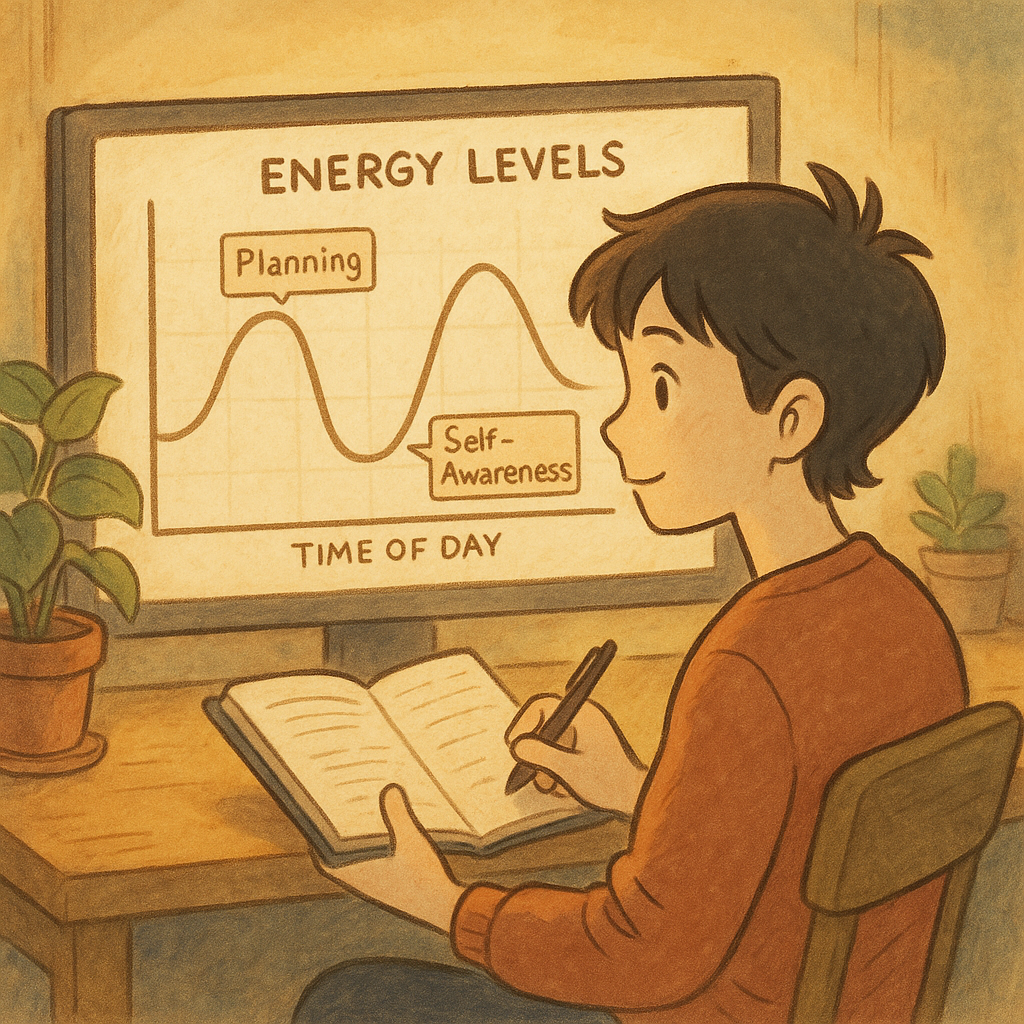
note:
Strategy #3: Energy management
- About becoming more conscious of your cognitive state
- When are you sharpest? When do you crash?
- Plan accordingly
- Know you have demanding afternoon? Take it easier in morning
- Big presentation? Schedule recovery time after
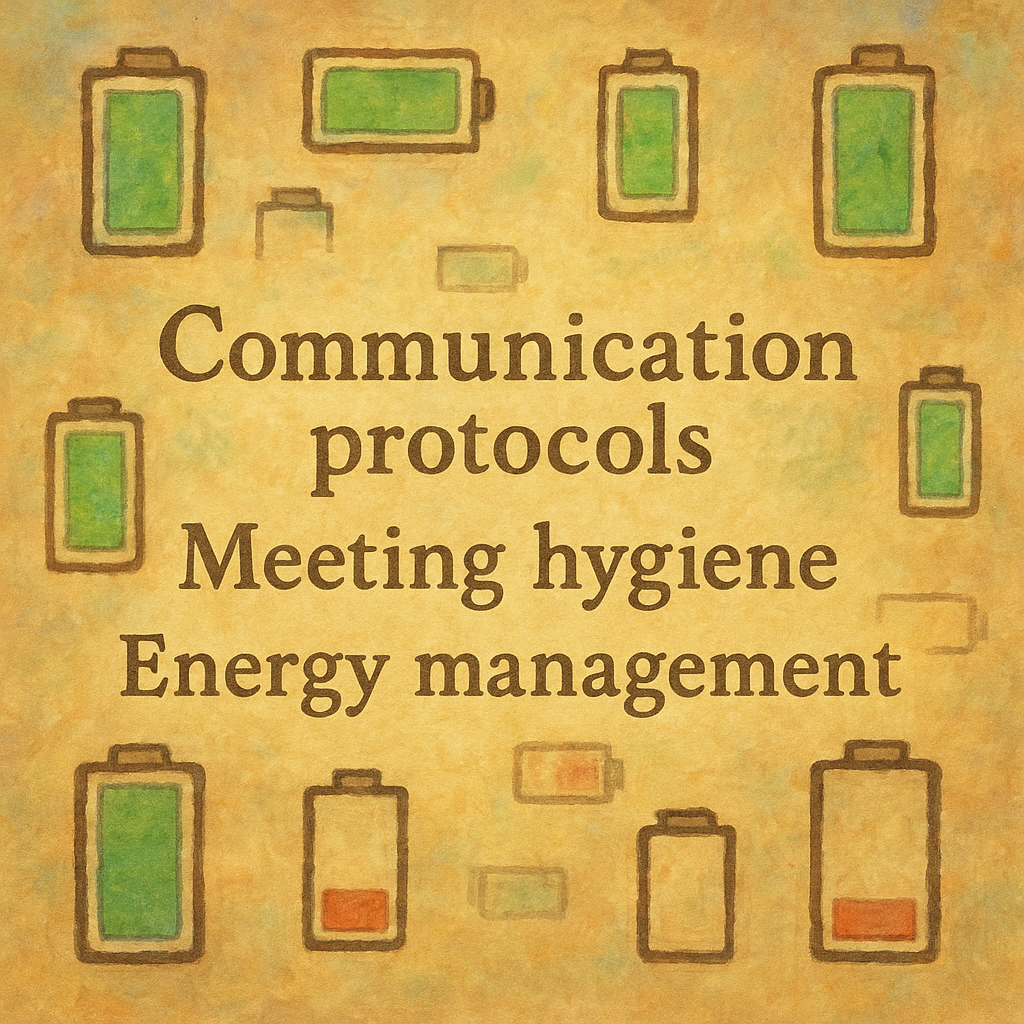
note:
But how am I going to remember these?

note:
Your toolkit
note:
- Created companion website with tools to help implement these concepts
- At link csi.lk/battery
- Includes all of the strategies i've talked about, the slides and the AI generated images
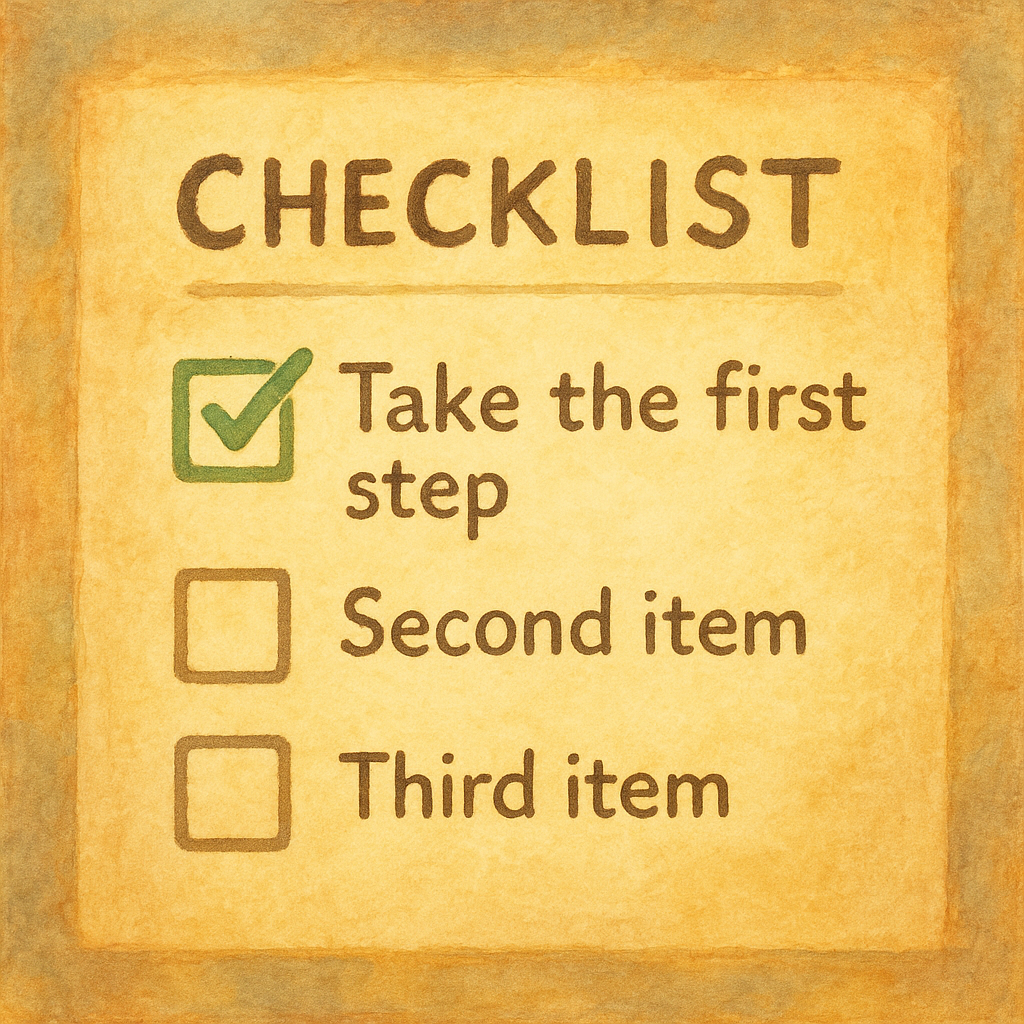
note:
Start tomorrow
- Don't try to implement everything at once - recipe for failure
- Pick one thing from today's talk and commit to trying it tomorrow
- Once that becomes habit, add another
- Remember, small changes compound
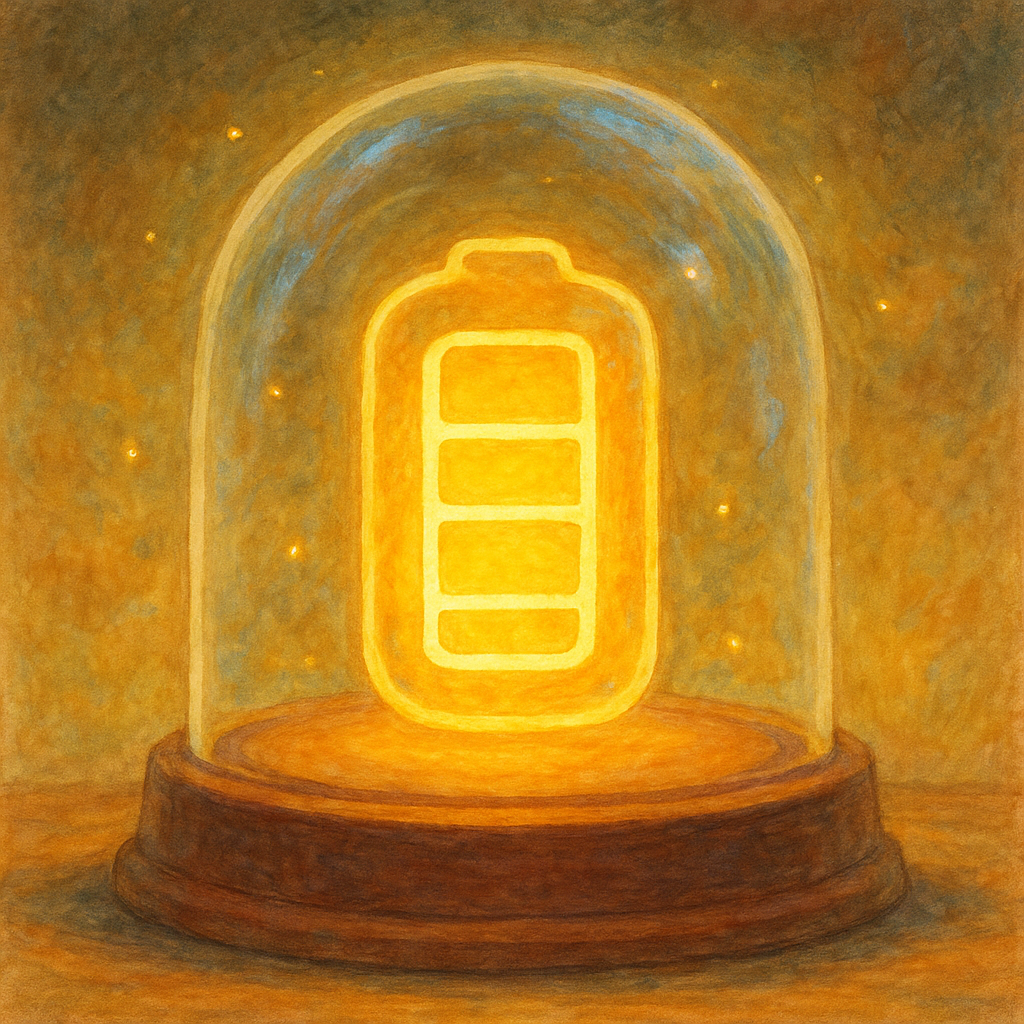
note:
Your cognitive battery is precious
- Final thought - cognitive capacity is your most valuable resource
- You don't expect your phone to last for days on end without charging
- Don't do the same with your brain
- Protect your cognitive battery, it will serve you better in everything you do

note:
Questions?
csi.lk/battery
-
Thank you
-
Love to hear your questions
-
Don't forget to check out companion resources online
-
Lastly I'm going to finish early to give you some time back to do the context switch